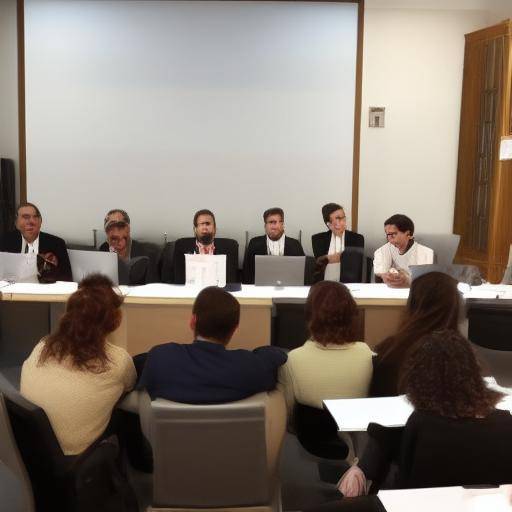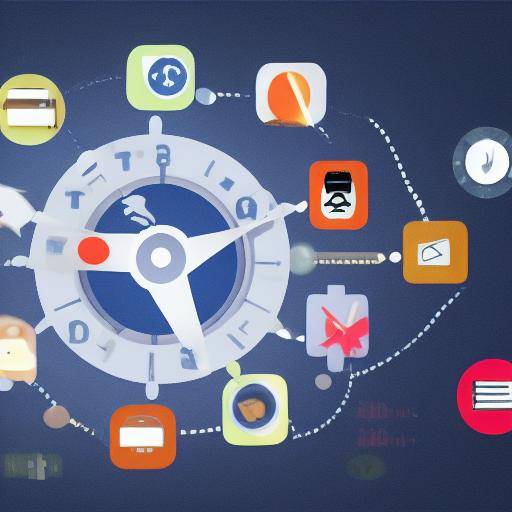
In the current world of work, effective time management is indispensable for resolving conflicts and increasing productivity. Achieving a balance between daily tasks, professional and personal responsibilities, and effective conflict resolution is a constant challenge for many. In this article, we will explore strategies for improving time management, resolving conflicts constructively and raising productivity in all areas. If you want to enhance your skills in this field, keep reading!
Introduction
Time management is a vital skill in any working environment. It allows professionals to organize their tasks, set priorities and optimize their performance. On the other hand, conflict resolution involves handling challenging situations effectively to maintain balance in the workplace.
In this article, you will immerse yourself in the fascinating world of time management, conflict resolution and productivity. From its historical origins to pragmatic strategies and current challenges, here you will find a comprehensive analysis that will equip you with valuable tools to face any work scenario.
Let us begin our journey towards efficiency and professional growth!
History and Background
Time management has been a concern since time immemorial. Humans have always sought ways to optimize their productivity, although the modern approach in this area is relatively recent. From the Industrial Revolution to the era of digital technology, time management has evolved significantly.
During the nineteenth century, with industrialization in full apogee, the concept of efficiency at work took the lead. Frederick Taylor, considered the father of scientific management, developed methods to improve efficiency in industrial production. His ideas laid the foundation for the management of modern time, revolutionizing the way companies approached productivity and the organization of work.
The emergence of computer science and digitalization in the 20th century prompted the development of tools and methodologies to optimize time. The focus on personal efficiency was consolidated, and multiple theories and systems emerged to manage time effectively.
In parallel, conflict resolution has been a constant concern in the labour sphere. From Fisher and Ury's theory of conflict negotiation to modern mediation and collaborative resolution strategies, approaches to managing disagreement have evolved along with society.
The exponential growth of globalization and diversity in the working environment has demonstrated the importance of developing conflict-solving skills effectively. Time management has been intertwined with conflict resolution, as effective time management can prevent unnecessary conflicts and facilitate resolution when they arise.
Analysis in Deep
Benefits of Time Management
Effective time management brings countless benefits. Not only does it achieve personal and professional goals, it also reduces stress and improves quality of life. People who dominate this ability are able to optimize their time, focus on important tasks and avoid procrastination.
Challenges in Conflict Resolution
Although conflict resolution can be a catalyst for growth and innovation, it has inherent challenges. Time management becomes a key ally in conflict management, as it allows to allocate the right time to treat divergences, find effective solutions and maintain harmony in the working environment.
Current Trends in Productivity
Productivity in the workplace has undergone significant transformation, driven by technological advances and changes in the working style. The widespread adoption of teleworking, the growing importance of work-life reconciliation, and the approach to labour welfare measures have redefined the notion of productivity. Organizations are looking for ways to maximize efficiency without compromising the health and balance of their employees.
Perspectives and Views
Time management, conflict resolution and productivity experts offer diverse perspectives on the interrelationship between these concepts. Some advocate integrated approaches that consider these areas holistically, while others prefer to address each aspect separately. Analyzing and understanding the different opinions is essential to develop a self-centered approach based on global understanding of the issues.
Comprehensive review
Practical Applications
How do these theories translate into practice? We will explore specific examples of how effective time management can prevent conflicts and improve productivity in real working environments.
Best Practices and Case Studies
What are best practices in time management and conflict resolution in leading companies? We will analyze case studies that illustrate successful strategies, as well as lessons learned from complicated situations.
Comparative analysis
We will compare methods and approaches in time management, conflict resolution and productivity improvement. We will identify similarities, differences and opportunities to effectively integrate these areas.
Practical Tips and Accessible Recommendations
We will provide practical advice and actionable recommendations to improve time management, resolve conflicts constructively and promote productivity at work.
Conclusions
In short, time management, conflict resolution and productivity are essential components of success in any working environment. Mastering these skills not only offers personal benefits, but also contributes to the overall well-being of the organization.
In understanding history, current challenges, emerging trends and best practices in time management, conflict resolution and productivity, professionals can anticipate problems, identify opportunities and optimize their performance.
Frequently asked questions
How does effective time management influence conflict resolution?
Effective time management allows prioritizing tasks, assigning the time needed to address conflicts and maintain calm in challenging situations, facilitating a more effective resolution.
What are the current trends in time management and productivity?
Current trends include the adoption of digital tools for time management, the focus on labour flexibility and the promotion of well-being as a productivity engine.
What role does communication play in conflict resolution?
Effective communication is fundamental in conflict resolution, as it promotes mutual understanding, empathy and the search for collaborative solutions.
How does effective conflict resolution affect labour productivity?
Effective conflict resolution minimizes distraction and tension in the workplace, allowing employees to focus on their tasks and contribute to a more harmonious and productive working environment.
What are the most common obstacles to effective time management?
Lack of planning, procrastination and over-requirement are often common obstacles. Identifying and addressing these challenges is essential to improving time management.
How to promote productivity in a diverse and multigenerational working environment?
Promoting inclusion, assessing diversity of perspectives and facilitating a collaborative work environment can increase productivity in a diverse working environment.
Conclusion In conclusion, time management, conflict resolution and productivity are intrinsically linked, and mastering these skills is essential for professional success. By implementing effective strategies and maintaining a proactive mentality, individuals and organizations can optimize their performance and cultivate healthy and productive working environments.
Therefore, in developing time management and conflict resolution skills, each person can contribute significantly to well-being and overall success in the workplace.
Remember that constant improvement in these areas can generate a positive impact both in your professional and personal life. Start applying these tools from today and watch how your effectiveness and results reach new levels!
Do you have more questions about time management, conflict resolution or productivity? Don't hesitate to contact us! We are here to offer you the knowledge and guidance you need.






















































